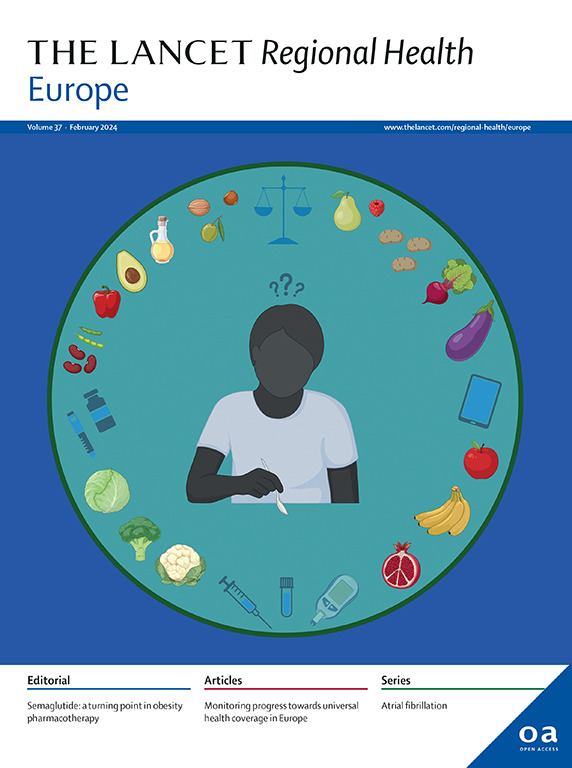非典型溶血性尿毒综合征(SETS aHUS)的Eculizumab停药和监测:一项多中心、开放标签、前瞻性单组试验
IF 13
Q1 HEALTH CARE SCIENCES & SERVICES
引用次数: 0
摘要
背景:典型溶血性尿毒综合征是一种发病率和死亡率高的罕见疾病。Eculizumab是一种单克隆补体抑制剂,是一种有效的治疗方法,但这种高成本药物的最佳使用方式尚未确定。SETS aHUS试验旨在确定eculizumab停药的安全性和监测方案的有效性,以检测疾病复发和复发时重新引入治疗。方法SETS aHUS多中心、开放标签、前瞻性单臂试验纳入了来自英国15家医院的参与者。年龄超过2岁的aHUS患者接受eculizumab治疗至少6个月,有资格退出治疗,取而代之的是监测以评估疾病活动和复发时重新引入治疗。主要结局指标是由于eculizumab停药对参与者造成的伤害。如果估计肾小球滤过率永久性降低,需要肾脏替代治疗或有明显的肾外疾病表现,则参与者满足主要结局。采用贝叶斯因子单臂二元模型对试验数据进行监测和分析,采用试验前停止规则。该试验已在欧盟药品监管局注册(EudraCT 2017-003916-37),并已停止招募。28名退出治疗的参与者中有1名(3.6%)达到了主要结局。28名参与者中有4人(14.3%)复发。只有确定了补体失调原因的参与者才会复发。通过监测和快速参与者准入,有可能重新引入eculizumab治疗。根据试验前分析计划,退出治疗可能不会给患者带来更大的风险。在这项单组研究中,对于符合试验入组标准的患者,排除了一些高风险患者,与继续使用eculizumab相比,在监测疾病活动性的情况下退出eculizumab治疗与伤害风险增加无关。资助国家卫生和保健研究所卫生技术评估方案。本文章由计算机程序翻译,如有差异,请以英文原文为准。
Eculizumab withdrawal and monitoring in atypical haemolytic uraemic syndrome (SETS aHUS): a multicentre, open label, prospective, single arm trial
Background
Atypical Haemolytic Uraemic Syndrome is a rare disease, associated with high morbidity and mortality. Eculizumab, a monoclonal complement inhibitor, is an effective treatment but the optimal way to use this high-cost medication has not been determined. The SETS aHUS trial aimed to establish the safety of eculizumab withdrawal and the effectiveness of a monitoring protocol to detect disease relapse and reintroduction of treatment if relapse occurs.
Methods
The SETS aHUS multicentre, open label, prospective, single-arm trial enrolled participants from 15 UK hospitals. Patients over two years of age with aHUS who were receiving eculizumab therapy for at least six months were eligible to withdraw from treatment, replacing it with monitoring to assess disease activity and treatment re-introduction if relapse occurred. The primary outcome measure was harm to a participant as a consequence of eculizumab withdrawal. Participants met a primary outcome if there was a permanent reduction in estimated glomerular filtration rate, requirement for kidney replacement therapy or significant extra-renal manifestation of disease. The Bayes factor single arm binary model was used to monitor and analyse the trial data, applying pre-trial stopping rules. The trial is registered with the European Union Drug Regulating Authority (EudraCT 2017-003916-37) and is closed for recruitment.
Findings
One of 28 participants (3.6%) who withdrew from treatment met a primary outcome. Four of the 28 participants (14.3%) relapsed. Only participants with an identified cause of complement dysregulation relapsed. It was possible, by monitoring and rapid participant access, to reintroduce eculizumab treatment. Based on the pre-trial analysis plan, withdrawal from treatment may represent no greater risk to patients.
Interpretation
In this single arm study, for patients fulfilling trial entry criteria, which excluded some high-risk patients, withdrawal of eculizumab treatment with monitoring of disease activity was not associated with an increased risk of harm compared to continuation of eculizumab.
Funding
National Institute for Health and Care Research Health Technology Assessment programme.
求助全文
通过发布文献求助,成功后即可免费获取论文全文。
去求助
来源期刊

Lancet Regional Health-Europe
Multiple-
CiteScore
19.90
自引率
1.40%
发文量
260
审稿时长
9 weeks
期刊介绍:
The Lancet Regional Health – Europe, a gold open access journal, is part of The Lancet's global effort to promote healthcare quality and accessibility worldwide. It focuses on advancing clinical practice and health policy in the European region to enhance health outcomes. The journal publishes high-quality original research advocating changes in clinical practice and health policy. It also includes reviews, commentaries, and opinion pieces on regional health topics, such as infection and disease prevention, healthy aging, and reducing health disparities.
 求助内容:
求助内容: 应助结果提醒方式:
应助结果提醒方式:


